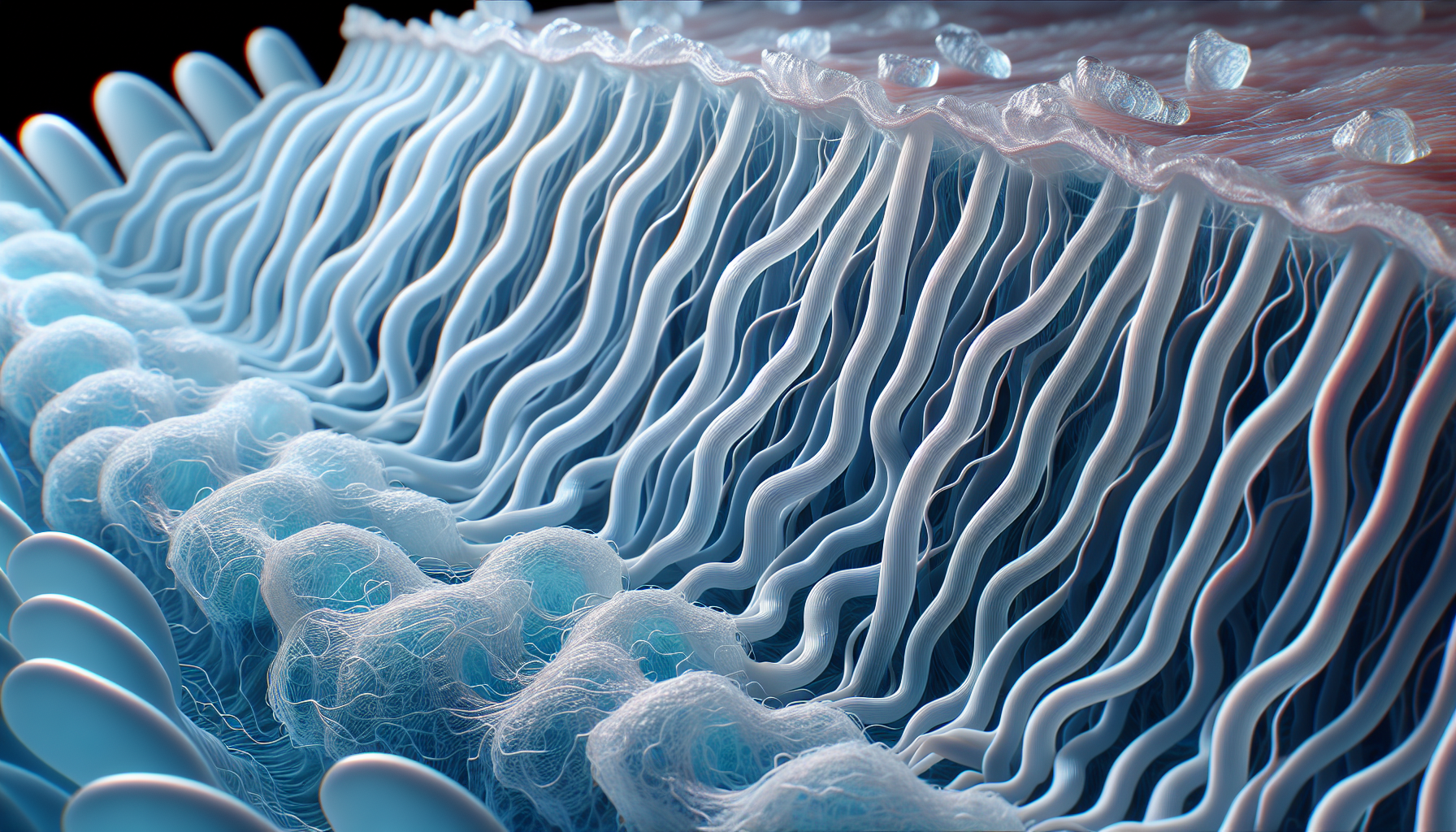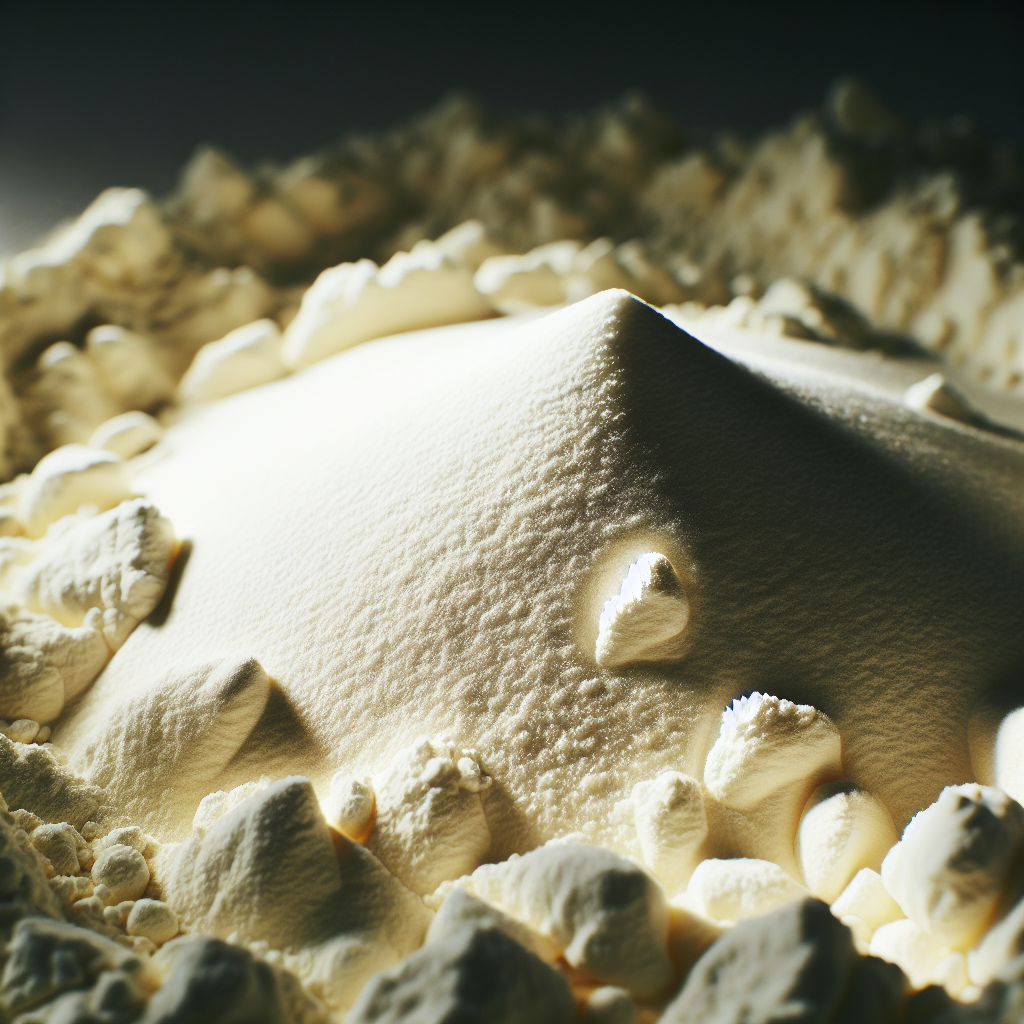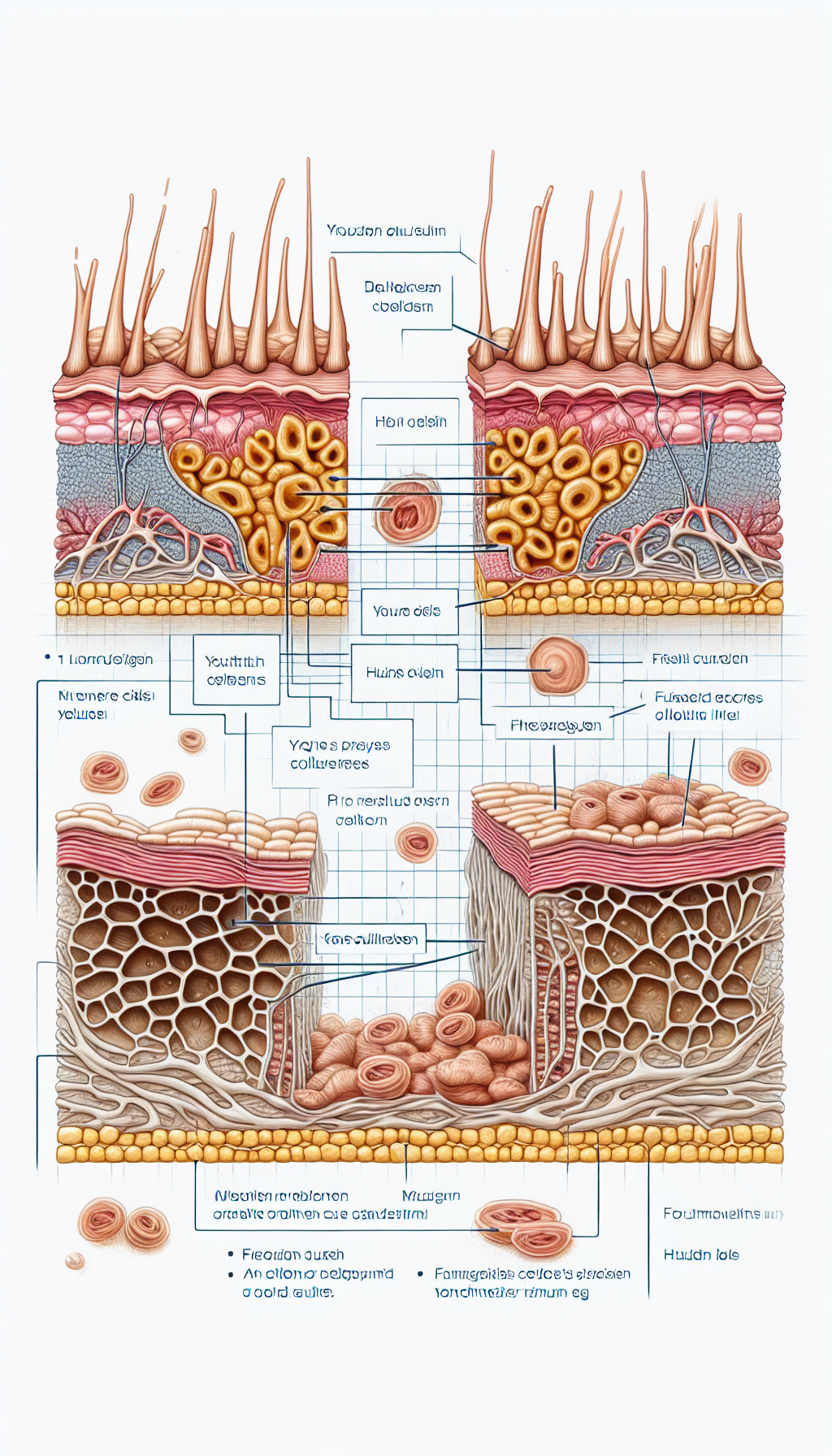Collagen is the most abundant protein in the human body and a critical component in maintaining a youthful appearance. It is the scaffolding that provides structure, strength, and elasticity to our skin. As we age, our body’s natural production of collagen decreases, leading to common signs of aging such as wrinkles, sagging skin, and a loss of firmness. Understanding collagen’s role in skin health, and how to preserve and enhance its production, can help in maintaining a more youthful appearance.
What is Collagen?
Collagen is a long, fibrous protein that makes up one-third of the protein in the human body. It is a major component of connective tissues that make up several body parts, including tendons, ligaments, skin, and muscles. In the skin, collagen helps form a fibrous network of cells called fibroblasts, upon which new cells can grow. It also plays a role in replacing and restoring dead skin cells.
Collagen and Skin Health
The skin is the largest organ in the human body and is directly related to our outward appearance. Skin health is not only about aesthetics but also about the body’s protection against environmental stressors such as UV radiation, pollution, and toxins. Collagen contributes to the mechanical strength of the skin, hydration, and the overall renewal process of the skin cells.
Loss of Collagen with Age
As part of the natural aging process, the body’s collagen production begins to slow down. This can be exacerbated by lifestyle factors such as smoking, high sugar consumption, and excessive sun exposure. The breakdown of collagen leads to thinner, more fragile skin, creating the conditions for wrinkles and sagging.
Enhancing Collagen Production
To combat the decrease in collagen, there are several strategies that individuals can adopt to help boost collagen levels. These include:
Diet and Nutrition
Consuming a diet rich in vitamin C, proline, glycine, and copper can enhance the body’s ability to produce collagen. Foods such as citrus fruits, berries, chicken, fish, and leafy greens are excellent choices to incorporate into meals.
Topical Treatments
Advancements in skincare have led to the development of topical treatments for skin rejuvenation. These often contain collagen peptides that can penetrate the skin’s outer layer and may help stimulate collagen synthesis.
Lifestyle Modifications
Lifestyle changes such as protecting skin from sun exposure with SPF, quitting smoking, and reducing sugar intake can all contribute to preserving collagen in the skin.
Supplements
Collagen supplements have gained popularity as they may help improve skin elasticity and hydration. These supplements often come in the form of powders, pills, or liquids that can be easily added to one’s diet.
Preventing Collagen Breakdown
Alongside promoting collagen production, it is equally important to prevent the breakdown of existing collagen. Here are some strategies to protect collagen:
Antioxidants
Antioxidants play a pivotal role in skin health. They help neutralize free radicals, which are unstable atoms that can damage cells and lead to premature aging. Incorporating antioxidants into the daily skincare routine can provide a protective barrier against environmental stressors.
Therapeutic Massage
Massages not only relax the muscles but can also support skin health. The therapeutic effects of massage on skin health include improving blood circulation, which is essential for transporting nutrients necessary for collagen production.
Regular Dermatologist Visits
Regular check-ups with a dermatologist can help in monitoring the health of your skin and in detecting early signs of collagen breakdown. It’s also an opportunity to receive personalized advice on skin care and collagen production.
Innovative Collagen Research and Treatments
The scientific community is continuously researching new ways to enhance collagen production and prevent its breakdown. Some of the innovative treatments being studied include:
- Laser Therapy: Non-invasive laser treatments can stimulate collagen production by causing controlled damage to the dermis, prompting the skin to heal and in the process, produce more collagen.
- Microneedling: This procedure involves tiny needles that create micro-injuries in the skin, leading to increased collagen production as part of the healing process.
To find niche and specific resources that support the points made about innovative treatments and research on collagen, reputable medical journals and industry-specific publications would be the most authoritative sources. However, such resources must be accessed to ensure their quality and relevance.
Conclusion
Collagen is fundamental to maintaining a youthful appearance, and its role in skin health is irreplaceable. By understanding the factors that affect collagen production and implementing strategies to enhance and protect it, individuals can make informed decisions to promote skin health.
As research progresses, new treatments and products continue to emerge, offering hope for those looking to maintain their skin’s youthfulness. While the natural aging process is inevitable, the proactive steps we take towards skin care can make a significant difference in how gracefully we age.



